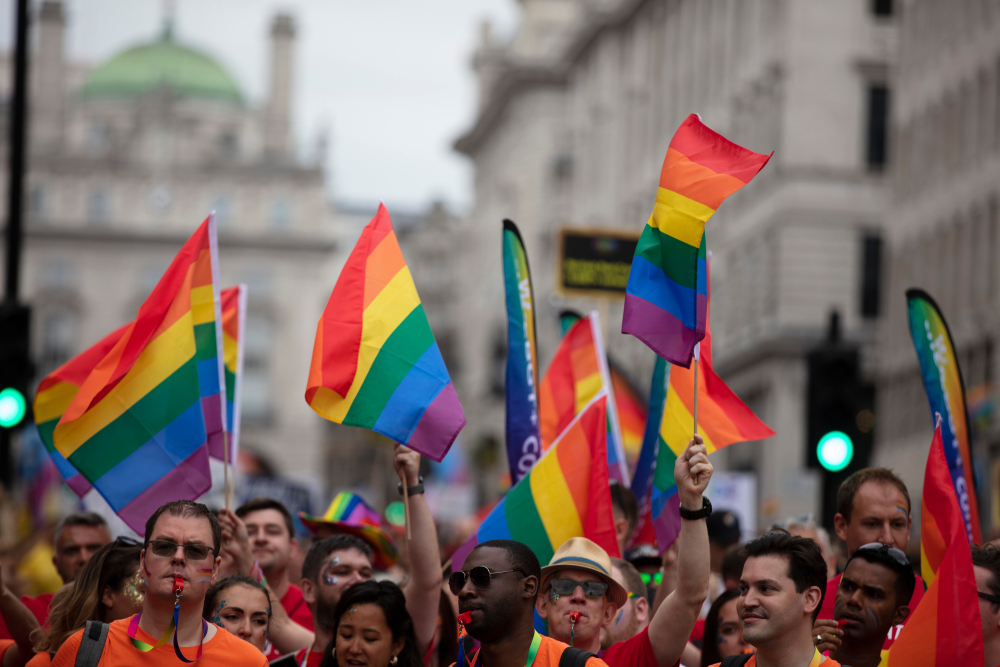David Cameron advocated for both drug policy reform and gay marriage, but in his six years as Prime Minister he only legislated for one of those causes. Why?
When Peter McGraith and David Cabreza were wed after 17 years together at midnight on the 29th March 2014, they became the first gay couple to marry under the Marriage (Same Sex Couples) Act in March 2014. It was the joyous result of a centuries-long struggle for gay rights in the UK.
Sodomy was first outlawed, and made publishable by death, by Thomas Cromwell on behalf of Henry VIII in 1533. In 1861, the punishment was reduced to a mere 10 years in prison or transportation to Australia. Male homosexuality was then criminalised entirely in 1885 (female homosexuality was never explicitly targeted in legislation for fear of drawing women’s attention to the issue, potentially encouraging them into lesbianism).
It took until 1967 for same-sex acts between men over the age of 21 conducted in private to be legalised in England and Wales (Scotland in 1980, and Northern Ireland in 1981) – a full 10 years after the Wolfenden Committee had recommended such changes.
Barely two decades later, in 1988, Margaret Thatcher’s pernicious Section 28 legislation was introduced, which banned local authorities from ‘promoting homosexuality’ or ‘pretended family relationships’, and prohibited councils from funding educational materials and projects perceived to 'promote homosexuality’.
This was eventually repealed in 2003, six years into a Labour administration, and after the age of consent had been equalised to 18 in 2001. Civil partnerships and same-sex adoption rights were both introduced in 2005, with protection from discrimination enshrined in the Equality Act of 2010. Before finally gay marriage legislation passed through Parliament in 2013, becoming effective in early 2014.
Compared to the struggle for the rights of gay people in the UK, the push for sensible drug policy is a relatively new one, with prohibitionist approaches only introduced in the early 20th century, culminating in the Misuse of Drugs Act (1971) which still forms the basis of our laws today.
It is the politics surrounding the introduction of gay marriage that provides a useful case study for those of us pushing to reform counterproductive drug policies. Gay marriage was introduced by Conservative Prime Minister David Cameron, despite not featuring in the 2010 manifesto on which he was elected, and going directly against the wishes of both his MPs and the wider party. There was no political need for Cameron to bring about the change, so how and why did it happen?
Firstly, it was a move overwhelmingly supported by the general public (even though, only 30 years before, up to 70% of people regarded homosexuality as "always" or "mostly wrong"). Cameron, looking ahead to the 2015 election, knew legalising gay marriage would burnish his liberal credentials and that – outside of Parliament at least – it was relatively uncontroversial.
So, drug reform needs to become uncontroversial. Well, in so far as is possible, it needs to become less controversial. In political theory parlance, it needs to move from being a ‘position issue’ to a ‘valence issue’: drug policy must move from an issue on which voters have a firmly held, reactive and morals-based opinion (think the death penalty), to an issue governed by competency, evaluating a political party or individual politician’s ability to manage the issue at hand (think the economy).
Normalising discussions of drug use, tailoring arguments likely to be most effective with different sets of interest groups, and hammering home the costs – both human and financial – of our disastrous current approach will encourage people to reflect on whether the ‘war on drugs’ is really working.
Secondly, the implementation of gay marriage also provides an example of the success that can be made when advocacy efforts are comfortable embracing incrementalism.
While critics might suggest that Labour should have simply introduced fully-fledged gay marriage instead, its eventual implementation was undoubtedly made more likely by the introduction of civil partnerships a decade beforehand.
The endless debates in drug policy circles about the relative merits of decriminalisation and legalisation as ends in themselves would become unnecessary if the implementation of decriminalisation and diversion schemes turn out to be a first step on the road to legalisation and regulation.
Where gay marriage had a Prime Minister in David Cameron willing to push through the policy change against the will of his own party, current efforts to transform our approach to drugs sorely lack an equivalent political champion. Drug policy reform needs a political actor willing to stake social and political capital on the issue, ruffle some feathers, take some body-blows, and stand up to make the positive, passionate case for the cause.
At the Conservative Party Conference in 2011, the then-Prime Minister pithily declared: “I don’t support gay marriage in spite of being a Conservative. I support gay marriage because I am a Conservative.” This is a template directly applicable to drug policy.
In the same way that arguments aimed at persuading conservatives of the virtues of gay marriage were made on the grounds of liberty, family and morality, arguments about drug policy based on cost, community and freedom could justify a future politician stating: “I’m not in favour of changing our approach to drugs in spite of being a Conservative, I support harm reduction because I am a Conservative.”
And it is notable that it was a Conservative who, whilst relying on the votes of opposition parties to pass it, ultimately introduced gay marriage legislation only two years after a Labour government, who chose to ignore the opportunity to introduce such legislation themselves on the shamefully conservative grounds of “questions of religious freedom”, had left office.
This highlights a recurring political paradox, traditionally traced back to Richard Nixon’s visit to China in 1972 which transformed the Cold War by driving a wedge between the People’s Republic of China and the Soviet Union – decisively shifting the balance of power in favour of the USA. Nixon’s visit has since become a metaphor to refer to “the ability of a politician with an unassailable reputation among their supporters for representing and defending their values to take actions that would draw their criticism and even opposition if taken by someone without those credentials” It was only longstanding cold-warrior Nixon that could welcome Communist China back onto the global stage.
With regards to drug policy, therefore, we must accept the possibility that a government from the right has a unique opportunity to push through reform. In the same way that only former hedge fund manager turned fiscal hawk Rishi Sunak could deliver a £300 billion package of COVID support without spooking the markets, it may be that it takes a politician with solid ‘law and order’ credentials to push through the reforms urgently needed to our drug policy laws.
It is this fact in particular that makes Keir Starmer’s complete refusal to engage in matters of drug policy reform so desperately tragic and unforgivable. As a former human rights lawyer and Director of Public Prosecutions, he has a unique opportunity to make the case for reform, yet instead he prefers to unquestioningly continue prosecuting a war on drugs that disproportionately ruins the lives of communities of colour, as well as the poor, vulnerable and marginalised.
There are of course significant differences between the fight for gay marriage and the push for drug policy reform. Gay marriage was essentially costless monetarily for the government, whereas substantive drug policy reform would come with a sizeable initial cost – though long term, not fighting the incredibly expensive war on drugs would save billions. This economic impact could also be beneficial; depending on the model of distribution and regulation of legalised drugs, revenues for the exchequer could be significant.
Gay marriage was also a policy that seriously threatened few vested interest groups. Whilst there was considerable outrage and opposition from religious groups, hard right politicians and social and moral conservatives, there were no business interests akin to that of the big alcohol and tobacco working tirelessly to prevent drug policy reform, lest it draw people away from using their (often substantially more harmful) products.
The fight for LGBTQ+ rights is by no means over, and the fight for reform to our archaic drug policies is yet to truly catalyse into an unstoppable campaign for change. The two movements are both necessary allies and natural companions with much to learn from one another, with shared commitments to social justice, personal sovereignty and liberation from oppression.
Gay marriage is one of the success stories of the modern LGBTQ+ rights movement and, as the horrific overturning of Roe vs Wade demonstrates, it is vital that progressive movements continue to learn from and fight alongside one another to engender and enshrine lasting change.


